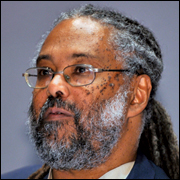Home / Issues / From the editor, Winter 2011
An impasse that haunts our work
Coming to terms with the 'black empowerment controversy,' four decades later.
Courter was referring back more than four decades to the tumultuous 1969 GA, when conflict over how the UUA would respond to the rise of Black Power led to a walkout and fears of denominational schism. In delivering her annual report, Courter read a summary of what had happened during the UUA’s “black empowerment controversy” and asked whether this story was news to her audience. For many, it was.
In “The Empowerment Tragedy” (page 29), the Rev. Dr. Mark D. Morrison-Reed asks, “Why has it been so difficult for the UUA to come to terms with what happened between 1967 and 1970?” He tells the story of the empowerment controversy not to vindicate one party or another, but to understand the context and motivations of the dedicated UUs whose commitments to racial justice nevertheless led them to an impasse.
His perspective is rooted in personal experience as well as thirty-five years of historical research on African-American religious liberals. His most recent book, Darkening the Doorways: Black Trailblazers and Missed Opportunities in Unitarian Universalism, is an extraordinary collaboration with other UU historians to show the range of African-American experiences in our faith tradition. Through historical documents, memoirs, and interpretive essays, the book shares the stories of black Unitarians and Universalists. Their stories are all too often heartbreaking. But they help reveal that Unitarian Universalism has been—and already is—more diverse than we sometimes assume. Late in the book, he writes, “if we want to be diverse, we must appreciate the diversity we have achieved.” I heartily recommend it.
UU World is delighted to recognize Laura Randall, our administrative assistant, who received preliminary fellowship with the UUA Ministerial Fellowship Committee in September.
Corrections
An essay in the Fall issue (“If It Looks Like a Universalist . . .,” page 50) erroneously referred to the Rev. Dr. Gordon McKeeman as deceased. We were delighted to be reminded by him that he is very much alive, and we deeply regret the error.
A news story (“Utah UUs Arrested in Energy Protest,” Fall 2011, page 40) said that Tim DeChristopher had bid on oil and gas leases to protect national parklands from drilling. The leases were for federal land in Utah, but did not include parcels inside national parks.
Comments powered by Disqus








